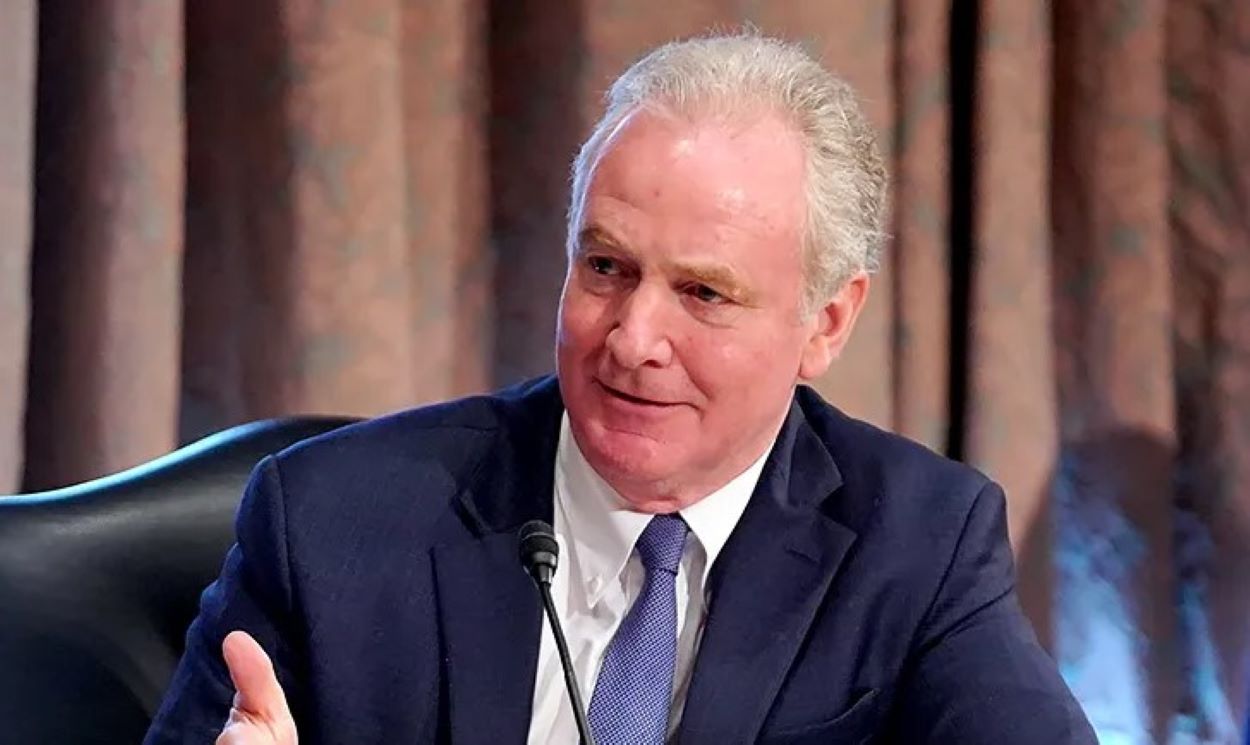In a recent interaction with Pakistani journalists at the annual gathering and dinner event of the DC, Maryland, Virginia (DMV) segment of the Association of Pakistani Physicians of North America, US Senator Chris Van Hollen clarified the stance of the Biden administration concerning Pakistan’s internal politics.
Dismissing allegations of attempted political manipulation in Pakistan, Hollen asserted that there had been no interference in Pakistan’s domestic affairs by the current US administration. His comments come amidst a tumultuous period in Pakistan politics. Imran Khan, the Chairman of Pakistan Tehreek-e-Insaf (PTI), alleged foreign involvement in his removal from power last April through a vote of no confidence.
During this significant event, where Hollen was honoured as a special guest and was accompanied by Pakistan’s Ambassador to the US, Masood Khan, he took the opportunity to emphasize the importance of transparent elections globally. Hollen affirmed that it is the prerogative of the Pakistani populace to elect their leaders and underscored the necessity for elections to mirror the people’s true will. He advocated for establishing an electoral environment that is both free and impartial, stating that fostering such a democratic setup is in the interest of not just the US but other democratic nations and the citizens of Pakistan.
US-Pakistan Bilateral Relations
Senator Hollen also touched upon the bilateral relations between the US and Pakistan, signifying the Biden administration’s keenness to foster a robust partnership with Pakistan. He referenced the recent aid extended by the US following the devastating floods that struck Pakistan as a testament to the American government’s commitment to assisting the nation in times of crisis. Furthermore, he lauded the American efforts in facilitating Pakistan’s procurement of a $3 billion bailout package from the International Monetary Fund (IMF). Hollen underscored the importance of nurturing positive relations with Pakistan, emphasizing that a harmonious relationship between the two nations is pivotal for ensuring global stability and security.
The Ciphergate Controversy: A Timeline
The so-called “Ciphergate” controversy took centre stage on March 27, 2022, when Imran Khan, a few days before his removal from power, publicly displayed a letter which he claimed was a diplomatic cipher from a foreign entity, urging the dissolution of his government. Khan refrained from divulging the full contents of the message and the identity of the sending nation initially but later accused the United States of being involved, specifically pointing to conversations with Assistant Secretary of State for South and Central Asian Affairs, Donald Lu.
This scandal evolved significantly when Azam Khan, a principal secretary under Khan’s administration, testified before legal authorities that the former Prime Minister had exploited the cipher for political manoeuvring to circumvent a potential vote of no confidence. Azam revealed Khan’s intention to leverage the cipher to craft a narrative against the opposition and the establishment, despite advice against such usage. According to Azam, Khan perceived the cipher as an opportunity to divert public attention towards alleged foreign interference in the impending no-confidence motion spearheaded by the opposition. This complex saga has brought to light the intricate dynamics of Pakistani politics, showcasing a period marked by allegations, confessions, and dramatic political shifts.






